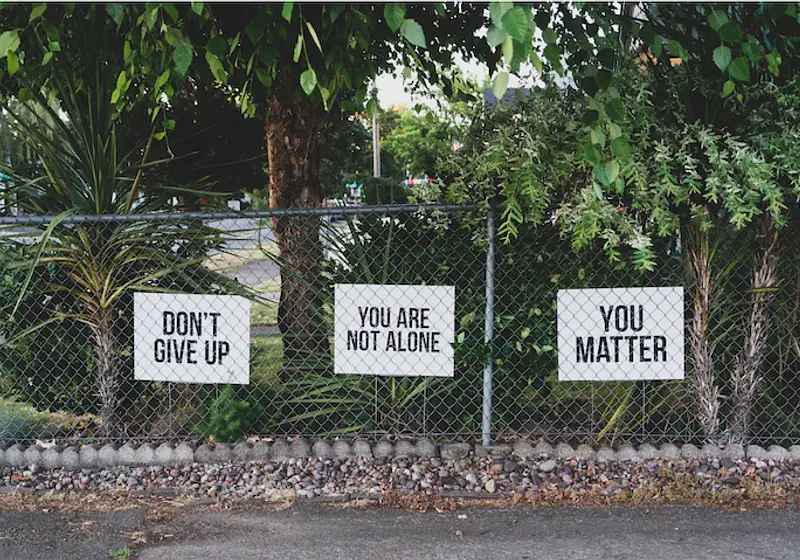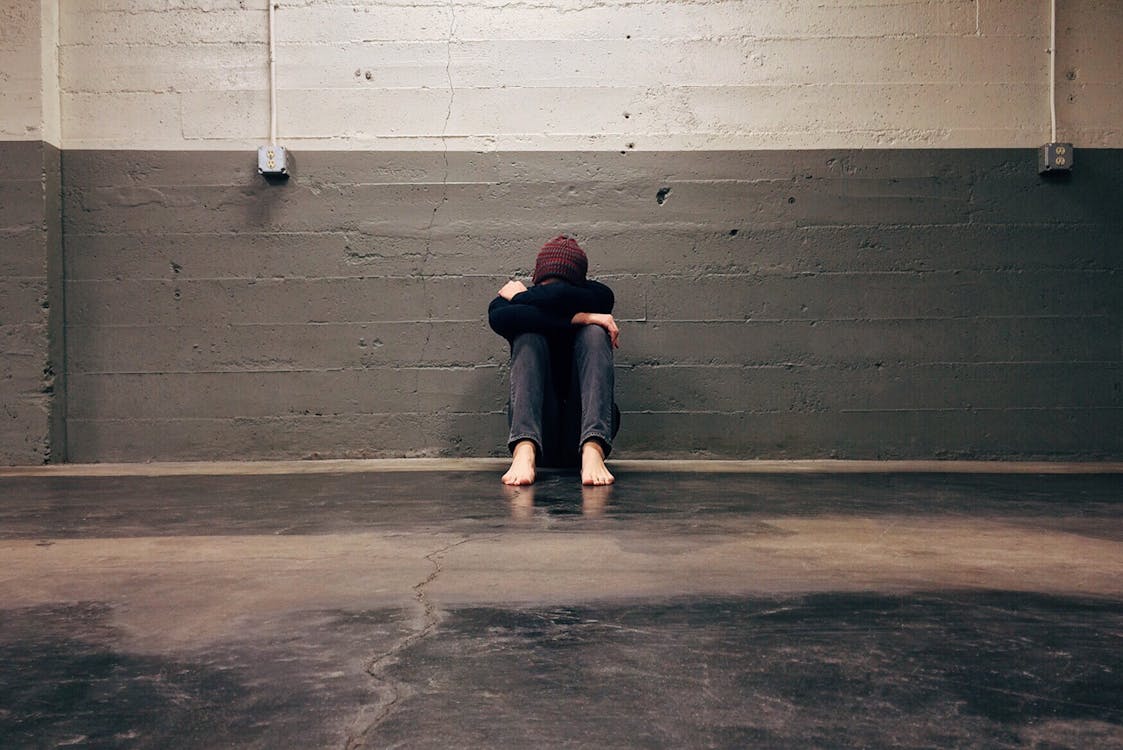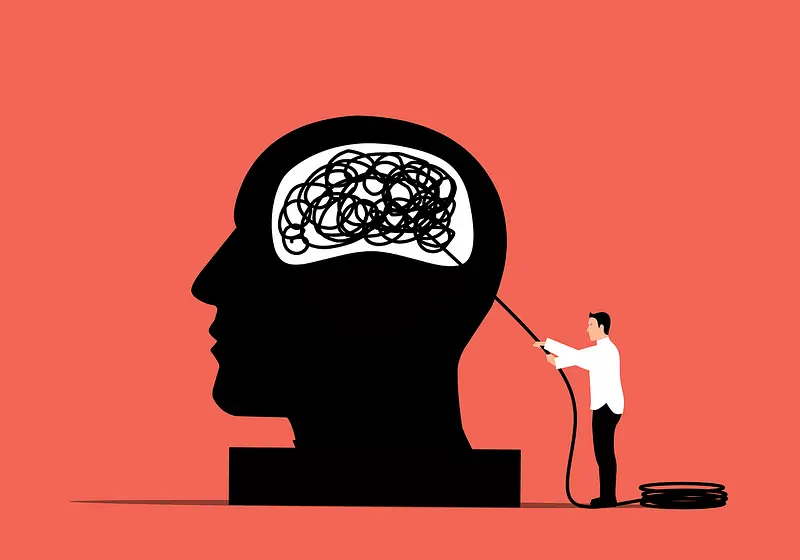It is officially May, which means it is officially national mental health awareness month. The purpose of this month is to spread awareness of the importance of good mental health and reduce the stigma around mental illnesses. While mental health should be recognized year-round, May is a good time to bring it to the forefront and remind people of its importance. So, how can you, as a teen, recognize this month and spread awareness?
The first step is learning.
Let us slide into your dms 🥰
Get notified of top trending articles like this one every week! (we won't spam you)Overview of Mental Health
Step one of reducing the stigma around mental health problems and mental illnesses is erasing the confusion and falsities. What classifies a mental illness or mental health disorder?
A disorder that causes a range of conditions that regularly affect one's mood, thoughts, and behavior. For example, depression, anxiety, schizophrenia, and eating disorders.
Mental illness is never a choice or part of a personality; it is and should be taken just as seriously as a physical health condition. There is not a single cause for mental health disorder; some happen genetically, some as a cause of trauma or environmental issues as a child.
Image Credit: Pixabay from Pexels
Recently, mental health disorders are affecting teens more and more, with nearly 50 percent of adolescents having had one at some point in their lives. Depression in teens has increased by 59% since 2007, the suicide rate has risen about 56%, and 36% of teenage girls report feeling anxious daily. Poor mental health is prevalent in many teens' lives, but little is done about it. The average student to school counselor ratio in the U.S. is 464 to 1 and over 11 million high school students are enrolled in school without counselors.
Now, armed with the numbers, it is clear why mental health awareness is so important. The stats above describe diagnosable mental health disorders, but managing mental health in general is just as important. Nearly everybody feels anxious, sad, overwhelmed, and more on occasion, but these feelings are typically brushed aside, turning temporary problems into much bigger ones. This happens especially in high schools and with teenagers, where good mental health is dismissed for the sake of good grades or social pressure.
This month, it is important to recognize the mental state many teens are in and why it matters.
Take the Quiz: Are you "Delulu"?
Are you grounded in reality, or letting your overthinking run the show?
Mental Health and Teens
As a teen, you may recognize in yourself and your friends signs of poor mental health practices. Maybe your missing assignments are stacking up because of anxiety, or your friend is missing a lot of school due to feeling depressed. It is common to hear high schoolers bragging about how little sleep they got the night before, or how many times they have to talk to the counselor. In short, poor mental health is a prevalent part of most teens' lives, but it can feel impossible to change that.
Image Credit: Elisa Ventur from Unsplash
The average teenager's day consists of up to eight hours of school, multiple extracurricular activities, and long periods of homework and study time. Then, of course, trying to find time for hobbies, hanging out with friends, and leisure time. With so much going on, it is difficult to take care of one's mental health, but it is essential in order to avoid burnout and to prevent small issues from becoming bigger.
But, where do you even start?
Taking Care of Your Own Mental Health
This month stresses the importance of advocating for others and improving mental health conditions as a whole, but you cannot help others before helping yourself. Here is how you can improve and preserve your own mental health (keep in mind that these tips are for mental health in general and serious, diagnosed mental health disorders require more, and sometimes professional attention):
1. Acknowledge how you feel and don't brush it off
Sometimes there is so much going on that feeling down or anxious only gets in the way and it is far too easy to ignore or downplay it. However, in most cases, this leads to those feelings growing bigger. If you're feeling negative or depressed, take the time to think about why; talk to somebody about it, write it down, or let it out with some other creative outlet.
If you are anxious about something, it can be beneficial to take a break and do something distracting. Even if the source of the anxiety is a big test and you have to study, you can take five minutes to go for a walk or put on some music and relax.
Image Credit: Arek Adeoye from Unsplash
2. Take time to feel better- treat this like a physical illness
Many schools now acknowledge and allow mental health days, so if yours does, take advantage of them. Having a day to relax or get caught up can be extremely beneficial and help relieve stress. Make sure to stay in contact with your teachers in case making up for your missed classes brings that stress back.
3. Investigate the roots of your feelings
If feelings of anxiety, depression, and other things are reoccurring, try to find their cause. I do this by going through everything in my mind and asking myself: If this were to go away entirely, would it make everything better? If you can find that one thing, or sometimes multiple things, consider what you could change. It is rare that you can get rid of a stressor entirely without consequences, but there may be something you can do to make it better: ask for help, alter your approach, or take a step back and take a break.
4. Notice when things get serious
If problems with your mental health become a consistent part of your day and do not dissipate after a while, then consider going to a counselor or therapist.
Helping Others and Making a Greater Difference
If you want to help others, begin within your own community. Most everyone has something making them stressed, anxious, or sad in their lives, so begin by approaching every interaction with empathy. Think of what you would need in that situation and replicate it, whether it be helping them study for a test, distracting them with something fun, or just being there and listening. Keep in mind, though, that if your friend seems to be constantly having problems or if it begins impacting their daily life, then encourage them to seek professional help.
Image Credit: Kelly Sikkema from Unsplash
There are also ways to make a greater difference. Start by spreading awareness of this month, whether in your school or online. The internet and social media have become essential to this cause: reposting information and stats about mental health (factcheck first!), signing petitions to get more counselors in school, and even just talking to people—many teens go online in order for support. Do make sure, though, to practice online safety and remember important hotlines like Safe2Tell when things become serious.
The topic of mental health may seem overdone to some—it is talked about so often in schools and among teens—but it is still relatively unacknowledged in larger terms. By spreading awareness and helping yourself and others, you could make a bigger difference than you might have imagined.
Hotlines
Kids Help Line | 1800-55-1800
Safe2Tell | 1-877-542-SAFE (7233)
National Alliance on Mental Health | 1-800-950-NAMI (6264)


















